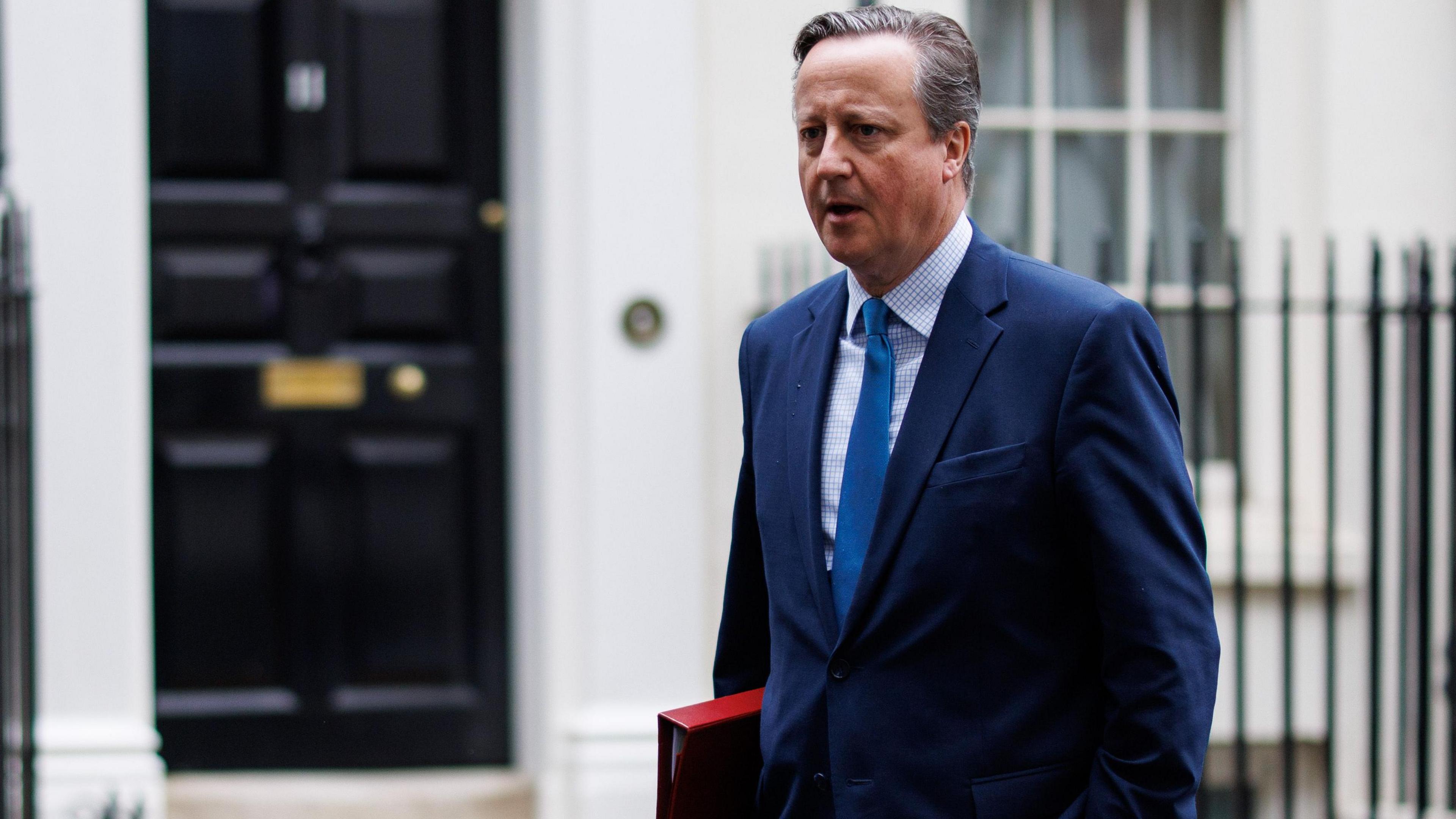New EU border IT system risks long delays - Cameron

- Published
David Cameron has told MPs he is "really worried" that the EU's new border IT system will lead to "long delays" when it is implemented.
The Entry Exit System (EES), delayed until at least October, will require visitors to register fingerprints, a photo, and passport details to enter the EU.
Lord Cameron, the foreign secretary, said the system "still needs testing and improving" before it is rolled out.
There have been warnings for more than a year that the extra time registration will take could cause very long queues.
Speaking at the European Scrutiny Committee, Lord Cameron said: "I think it's clear to me that the technology still needs testing and improving.
"I think we've made some progress, but I think there are some big choke points at Dover and St Pancras - and I'm really worried about there being long delays for people."
- Published6 May
- Published25 January
The much delayed EU-run EES will replace manual passport stamping.
Under the new system, French border police check passports as people leave the UK at the Port of Dover, Eurostar's St Pancras terminus and Eurotunnel in Folkestone.
Citizens of countries which are outside the bloc, including the UK, will need to register their biometric information.
In January, the Port of Dover alongside ferry firms DFDS, Irish Ferries, and P&O Ferries called for a delay in the scheme's roll out.
In a joint statement to the committee the group said there was an "existential risk facing critical supply chains, businesses, communities, and the tourism economy of nations on both sides of the Channel from the current lack of appropriate regime for the introduction of the EU Entry Exit System (EES)".
David Cameron warned the Port of Dover could be a potential "big choke point" for queues under the new system
Eurotunnel bosses said it would add "five to seven" minutes to crossings but assured no long car queues as extra lanes and technology will help smooth the process.
There were hopes that an app being developed by the EU could enable some of the registration to be done from home, but it is not expected to be ready for use in October.
Lord Cameron said the UK government's powers to improve the scheme were limited as it is an EU scheme.
"The best thing we can do is prepare as much as we possibly can," he said.
"But we have to cope with it because we're a third country."
The foreign secretary made the comments while the European Scrutiny Committee questioned him on the negotiations with the EU on a post-Brexit deal for Gibraltar.
Gibraltar is a British overseas territory situated on the southern tip of the Iberian peninsula, where it shares a border with Spain.
It is self-governing in all areas except defence and foreign policy.
The UK's decision to leave the EU in 2016, and thereby end freedom of movement between the two, created problems in Gibraltar, where thousands of people cross the border with Spain every day to work, shop or visit family.
After months of talks, a deal to ease travel and cut checks at Gibraltar's border with Spain is believed to be near.
Lord Cameron said he was working towards a "fluid" border with Spain, but insisted any deal would not "diminish in any way" the UK's sovereignty over Gibraltar.